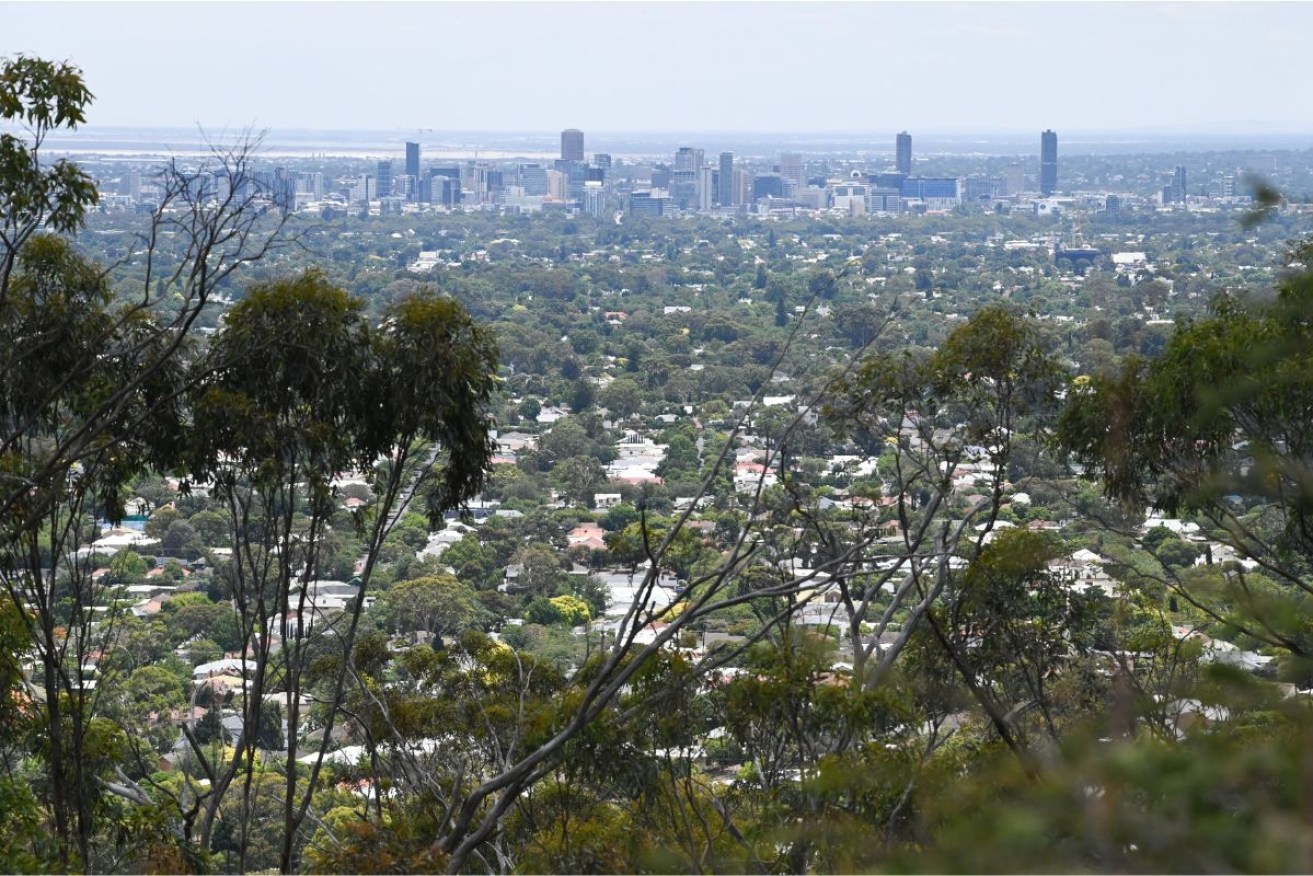Adelaide City Council set to lose ‘carbon neutral status’
The Adelaide City Council is preparing to move its climate strategy to a “net zero ready” model with a vote next week to consider discontinuing carbon offset payments.


Adelaide's cityscape. This picture: Green Adelaide
The council will invest in direct emission reduction activities instead of paying for carbon offsets, according to agenda documents about the implementation of the Climate Strategy 2030.
The decision to discontinue carbon offsets is a cost-saving measure within the council’s 2024-25 budget deliberations.
Under the draft 2024-25 budget, the council would save $330,000 that would have gone towards the park lands and sustainability program, including $180,000 that would have been used for carbon offset purchases.
The agenda paper prepared for Tuesday night’s City Planning, Development and Business Affairs Committee says offset funding will be redirected to deliver climate resilient and emission reduction projects, but that this will “not achieve the same emissions reductions as offsetting”.
The City of Adelaide is a participant in the federal government’s Climate Active program, which awarded the city with its carbon-neutral certification.
According to the council’s website, it achieved carbon neutrality in the financial years 2020, 2021 and 2022.
By pivoting to a “net zero ready city” under the new strategy, the City of Adelaide will no longer participate in Climate Active, losing its official carbon neutral status.
The agenda papers say this “may result in a less favourable global benchmark” within Climate Disclosure Project reporting.
Lord Mayor Jane Lomax-Smith told InDaily the council has “adopted ambitious targets to drive climate resilience and achieve emission reductions” within the new climate strategy.
“The council is investing in initiatives that drive direct emission reductions,” she said.
“We have chosen to prioritise being net-zero ready by taking further steps to change our operations and assist our communities to make tangible changes that have a direct impact in the City of Adelaide over an approach that invests in offsets.
“This means seeking significant investment in climate resilience locally rather than spending money on distant outcomes such as tree planting in distant places.”
The City Planning, Development and Business Affairs committee voted in favour of the climate strategy, including ditching offset payments, in their meeting on Tuesday with no debate.
The climate strategy needs to be approved at the council meeting next week before it’s adopted.
Adelaide City Council spent $47,450 in the 2020-21 financial year on carbon offsets, removing roughly 47,000 tonnes of carbon dioxide from the atmosphere through a wind farm in India and protection and regeneration of rainforests in Queensland and Cambodia.
A 2022 report on the City of Adelaide’s climate consultation with community groups and stakeholders found there was a strong desire to avoid acquiring overseas offsets and focus more on reducing consumption rather than offsetting to achieve net zero.
While the council previously declared they would be the “world’s first carbon-neutral city” this ambition was softened in 2017.
What will the climate strategy achieve?
“The strategy aligns the council’s goals and priorities on climate resilience, net-zero preparedness, biodiversity improvement, transitioning to a decarbonised economy and the council’s own undertakings into a single, coordinated approach,” Lomax-Smith said.
Key priorities of the climate strategy include eliminating the heat island effect, weaning off gas in city buildings, increasing active transport and supporting Aboriginal land management practices.
By mid-2022, community emissions from gas increased by 10 per cent, whereas emissions from electricity decreased by 62 per cent due to the state’s transition to renewable electricity.
The council’s Sustainability Incentives Scheme provides rebates to support residents replacing gas appliances with electric, undertaking home energy assessments and solar installations.
Within the climate strategy, the council acknowledge Kaurna Miyurna hold native title over the Adelaide Plains, including the City of Adelaide.
It has committed to continue to work in partnership with traditional owners to return caring for country practices, such as cultural burns.
An Aboriginal Rangers Program will be established for the Adelaide Park Lands to support traditional land management practices.
To create a cooler and greener city, the climate strategy aims to reduce temperatures of road and pavement surfaces by more than 9 degrees compared to bitumen surfaces in full sun. The council will also install microclimate sensors across the city to establish the current conditions and accurately determine the current heat island effect.
It is investing $5.7 million in a public realm greening program, which includes goals to achieve a net increase of 485 street trees each year and reach 40 per cent canopy cover by 2035. Their current canopy cover in streets and parks, according to the strategy, is 33 per cent.
The council will continue to enable on-street EV chargers, deliver events for World Car-Free Day and extend sections of the north-south bikeway.
You can read the current version of the Council’s Climate Strategy online. A finalised version will be publicly available after it passes the council meeting next week.




